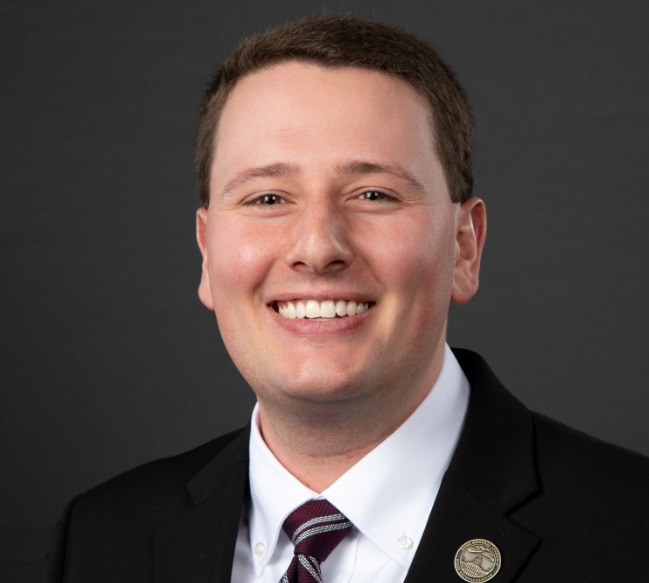
To the editor:
The challenges facing Iowa’s higher education system have been building for many years, and the impact on students is becoming increasingly severe. For far too long, we have seen a mission drift on campus, leading to out-of-control costs and a less-prepared workforce.
The state legislature has a duty to act since taxpayers are forced to foot the bill. Last November, for the first time in more than 50 years, Iowa Speaker of the House of Representatives Pat Grassley formed a new committee solely focused on ensuring our higher education system better serves students, not just the university bureaucracy.
I have the honor of leading that committee, and during our first year, we got right to work.
This fiscal year, the state of Iowa’s appropriations to our regent universities topped $500 million. The legislature continues to support higher education in Iowa, but trying to address the cost of higher education by throwing more money at the system is like rearranging the deck chairs on the Titanic.
Even as appropriations increase, the universities continue to drive up spending. For decades now, students in Iowa and across the country have seen sustained tuition increases, causing students to further weigh the costs and benefits of seeking higher education.
One of our solutions this year, House File 440, the College Affordability Act, was introduced and signed into law by Iowa Gov. Kim Reynolds just a few months ago. The legislation requires tuition rates for each academic year to be set before most students start enrolling, and it directs each university to offer at least one work-study program in which a student can earn their degree while working part-time and getting their tuition paid by the employer.
This policy will not only save students money but will also ensure the student is better prepared to step right into their new career after graduation. The College Affordability Act also directs each university to offer at least one three-year bachelor’s degree, saving students a year of time and lost wages.
In addition, the bill mandates the Board of Regents conduct a feasibility study and report back to the legislature on establishing a tuition guarantee, by which a student pays the same tuition rate through all four years of school.
It’s not just the legislature that sees the issues facing higher education today. Through negotiations with the Board of Regents, the board agreed to adopt a policy that caps annual tuition increases at a three-year rolling average of the higher education price index. This change is a significant departure from current policy, ensuring predictability for students throughout their four years of education and slowing long-term tuition growth for years to come.
In addition, the Board of Regents has agreed to review all academic programs across the three regent universities before the next legislative session in order to ensure they align with the state’s workforce needs. This will help ensure we are prioritizing a student’s employment prospects after graduation and that Iowa taxpayers are not subsidizing academic programs that don’t lead to gainful employment.
However, you don’t have to attend one of our state’s regent universities in order to pursue higher education in our state. Not every student wants to be, can be or has the time to be on campus in Ames, Iowa City or Cedar Falls. Iowa’s community colleges meet students where they are, in every corner of the state — no matter how rural.
We hear of students who want to stick close to home and save money while they’re starting their education or seeking a new path to jumpstart their career. A reform that would benefit Iowans seeking higher education closer to home would be to expand the current offerings at our community colleges by allowing these institutions to offer a limited number of bachelor’s degrees for our state’s most high demand fields.
Earlier this year, I charged our community colleges to conduct a feasibility study and report back to my committee before the next legislative session on what this could look like at our various campuses. In five of the 15 community college districts in Iowa, there is no nearby four-year college or university.
Today 24 other states allow community colleges to offer a limited number of bachelor’s degrees – next year, Iowa could be number 25.
In the first year of the House Higher Education Committee, we identified solutions that work for Iowa students, not just the university bureaucracy. In the next session of the general assembly, my colleagues and I look forward to building on the progress we’ve already made and continuing to deliver for Iowa taxpayers and students.
Rep. Taylor R. Collins
Mediapolis

















Taylor R. Collins hasn’t been installed to help Iowans. He’s a Republican, so he’s there to facilitate theft, by his handlers. The party of Kim Reynolds has been crowing all year about their eliminating the U.S. Department. of Education. Just to make sure, Trump installed fake wrestling mogul Linda McMahon (who, after hearing her speak, one would reasonably assume has never set foot in a classroom) to proudly manage its destruction.
Trump Republicans, complaining about “a less-prepared workforce”? That’s rich. There’s never been a workforce less prepared than this Republican caravan of fools.
Republicans today are anti-public education and anti-science. Therefore, I would view with suspicion all changes made to higher education systems in Iowa by Republicans. Especially when they begin with the denigrating phrases, such as “throwing more money at the system” is the same as “rearranging the deck chairs on the Titanic.” Make one dollar do the work of two while shortchanging students and faculty seems to be the main thrust of this treatise. But since the people of Iowa have seen fit to give their state entirely over to followers of a national felon, any changes made by same cannot bode well for higher education in the great state of Iowa.